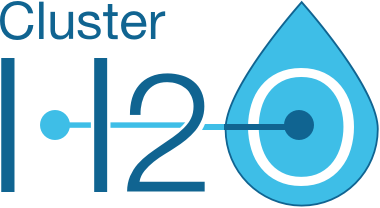Study on the durability of infiltration systems and the cleaning efficiency of buried infiltration systems
For better water management, buried infiltration systems temporarily store rainwater and gradually infiltrate it into the soil. This project aims to study the durability of these systems and the efficiency of filters to avoid clogging and reduce maintenance costs.
Date
From 01/08/23 to 31/08/25
Type
Project
Status
Started
Contact information
More information
In the current context of improved water management, the implementation of underground infiltration systems allows for temporary stormwater storage and gradual infiltration into the soil. To prevent clogging of these systems and limit maintenance costs, filters are placed upstream. The objective of this project is to study the durability of infiltration systems and the effectiveness of cleaning techniques.
To achieve this goal, a laboratory-scale test bench must be developed, along with a testing methodology. At least two representative and distinct infiltration systems (an open/semi-open structure module and an infiltration pipe) will be tested during the project to validate the methodology.
The infiltration devices to be tested will be placed in a suitable container; they will be wrapped in a geotextile and surrounded by granular backfill materials representative of real-life conditions.
Water, intentionally polluted with controlled concentrations of fine particles of known granulometry, will be injected into the system at a precisely controlled flow rate. The evolution of the infiltration capacity will be measured throughout the test. Then, one (or more) cleaning technique(s) will be tested on each device and evaluated based on the change in infiltration capacity.
To minimize the amount of water used for the project, the test will be conducted in a closed circuit.
An endoscopic camera inspection of the interior of the infiltration system will be performed before and after cleaning. Similarly, after each test, the container will be completely emptied, and a visual inspection of the different components (infiltration system, geotextile, granular material) will be conducted. The design and sizing of the test bench components have been finalized.
At the end of the project, the test bench may be made available to cleaning companies and/or manufacturers of new infiltration systems for testing as part of their product and service development or certification.
If necessary, the test bench and methodology developed during the project may be adapted to test other types of infiltration systems.
Host(s)
2 profile(s) associated to this action.
CRR
The Road Research Center (CRR) is an independent research center serving entrepreneurs and administrations active in the road construction sector. Its objective is to strengthen this sector and promote sustainable innovation. Its four main areas of activity are research and innovation, assistance, training, and expertise.
Boulevard de la Woluwe 42, 1200 Woluwe-Saint-Lambert, Belgique
Last updated: 05/02/2026

Cluster H2O
A Walloon cluster entirely dedicated to players and technologies in the water sector, it was created and validated by Wallonia.
Clos Chanmurly 13, 4000 Liège, Belgique
Last updated: 15/10/2025
